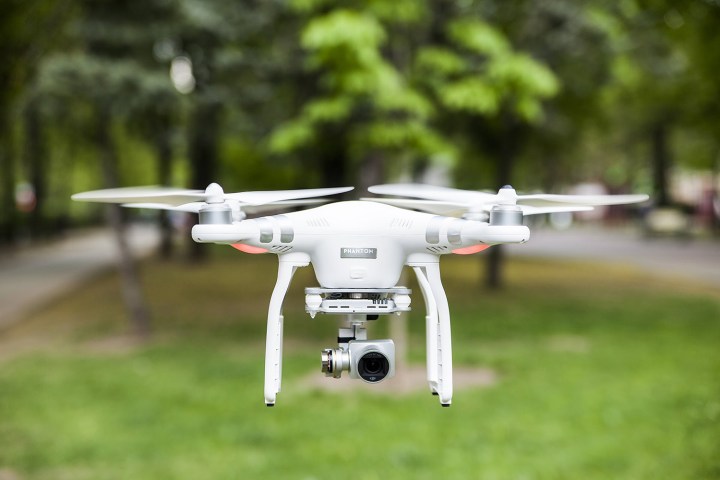
In a bid to improve safety in the skies and deter the implementation of possibly overzealous drone regulations by the Federal Aviation Administration (FAA), DJI says it’s about to launch a more dynamic version of its existing flight limitation software to help ensure operators only fly their machines in areas deemed safe.
DJI, one of the world’s top makers of consumer drones, already uses geofencing technology with its Phantom copters that prevents take-offs around permanent fixtures such as airports, but these latest improvements will mean maps and restrictions can be constantly updated according to an unfolding situation or special events.
For example, the authorities will be able to put restrictions in place around a wildfire to prevent firefighting efforts being impeded, while major public events such as sports games could also impose temporary flight restrictions that would render a drone inoperable close to the venue.
In addition, the changes will mean that for the first time, “drone operators will have, at the time of flight, access to live information on temporary flight restrictions,” DJI said in a release.
The technology making it possible has been built by LA-based AirMap, a young startup that collects and organizes low-altitude airspace data.
Commenting on the development, DJI’s Brendan Schulman said in the release, “We believe this major upgrade to our geofencing system will do even more to help operators understand their local flight environment, and to make smart, educated decisions about when and where to fly their drones.”
Some operators, for example employees inside a no-fly zone who need to use a drone in their work, will be able to temporarily bypass the system, but only if they first register their remotely controlled copter with DJI. However, in highly sensitive areas where national security is a concern – for example Washington, DC – the system cannot be bypassed.
DJI says the new mapping technology will be introduced next month via an update of its DJI Go app and drone firmware.
A million drones incoming
With around a million consumer drones expected to fly off the shelves over the holiday period, concerned authorities are looking at an array of methods for dealing with flight incursions. A number of new companies have sprung up offering technology that can take control of a drone and bring it safely back to the ground.
Meanwhile, the FAA is currently working on introducing a registration system for drone owners so an operator can be more easily traced in the event of a drone-related incident, whether deliberate or accidental.


